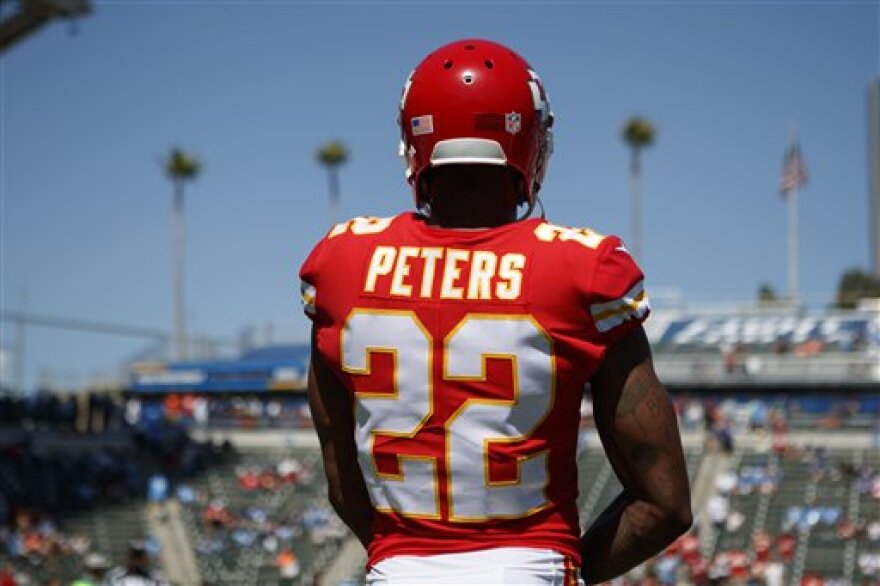What a difference four years makes.
In 2016, during Patrick Mahomes’ final season at Texas Tech University, San Francisco 49ers quarterback Colin Kaepernick started taking a knee as a silent protest against police brutality and the treatment of black people in America.
A few months later, Mahomes got a first-hand taste of how the NFL and the Kansas City Chiefs dealt with the social issues being raised by Kaepernick’s actions. Other NFL players, like then-Chiefs cornerback Marcus Peters, had picked up Kaepernick’s cause and carried it through the 2017 season with silent sideline protests of their own.
Peters’ sat during the national anthem before games, creating discomfort in the Chiefs organization, and he was subsequently traded after the season ended.
Now, as the reigning Super Bowl Most Valuable Player and the inarguable face of a changing NFL, Mahomes has used his platform to vocally support the Black Lives Matter movement, illustrated by his participation in a video put out by several NFL players that was released after the death of George Floyd in Minneapolis.
NFL stars came together to release this video, which asks the league to:
— SportsCenter (@SportsCenter) June 5, 2020
◼️ condemn racism and systematic oppression
◼️ admit fault in silencing players from peacefully protesting
◼️ state its belief that Black lives matter
(via @saquon) pic.twitter.com/N0pRltleic
“I’m aware of coming off a Super Bowl championship and being the quarterback of the Super Bowl winning team, but I’ve always believed in people,” said Mahomes, when asked about the weight his message now carries. “I’ve always believed when people do things together—do things for the right reasons and have a good heart when they do it—that things get done.”
In the same video, Chiefs safety Tyrann Mathieu asks, “How many times do we need to ask you (the NFL) to listen to your players?”
A day after the video lit up social media, NFL commissioner Roger Goodell responded, releasing his own taped statement.
“We, the National Football League,” Goodell said, “admit we were wrong for not listening to NFL players earlier.”
We, the NFL, condemn racism and the systematic oppression of Black People. We, the NFL, admit we were wrong for not listening to NFL players earlier and encourage all to speak out and peacefully protest. We, the NFL, believe Black Lives Matter. #InspireChange pic.twitter.com/ENWQP8A0sv
— NFL (@NFL) June 5, 2020
It was a stunning turnabout, not only for the NFL but for the Chiefs.
After Peters chose not to stand for the anthem in the nationally televised season opener at New England in 2017, then the following week in the Chiefs home opener against Philadelphia, Chiefs chairman of the board Clark Hunt released a statement with the following conclusion:
“I believe, as Americans, each of us has a responsibility to engage one another with empathy and humility to gain a better understanding of ways we can work together to solve these difficult issues.”
Hunt’s statement supported discussion of the issues but pointedly lacked such support for his player.
When asked about Peters the week the statement was released, Coach Andy Reid also sidestepped the attention his star cornerback was receiving.
“I don’t want to get into a debate over it. That’s a debate you’re not going to win either way,” Reid said at the time.
When the subject of kneeling during the anthem as a silent protest was brought up again with Reid this week, he responded, “This isn’t about kneeling. It’s about progress, man. We all get hung up on this other deal. That’s not what this is about, if we can just focus on appreciating life, appreciating people (and) not judging by the outer skin.”
In a thesis published last fall at the University of Missouri entitled, “A Study of the Kansas City Chiefs Crisis Communication During the National Anthem Protests,” author Devan Collins writes when referring to the events of 2017: “The Chiefs never directly mention or address the anthem protests in their articles, let alone apologize on behalf of the players participating or the organization itself, but rather simply promote what they (the Chiefs) had been doing in the community.”

The season after Peters was traded (and with Mahomes now officially the starting quarterback), the Chiefs were intent on focusing solely on football and avoiding any talk of off-the-field social issues.
For his part, Tyrann Mathieu spent the tumultuous 2016 and 2017 seasons with the Arizona Cardinals, fully aware of what Kaepernick and others who followed tried to convey to the NFL.
He concedes now that he could have been more vocal himself at the time, bue he says he was more conscious of his own career.
“For me, it was about continuing to turn a certain corner,” says Mathieu now. “It was (about) making me a better person, trying to be the best teammate and trying to avoid negative headlines.”
Mahomes suspects there may be some blowback from his Black Lives Matter message. But he also seems secure enough with his stature as one of the league’s brightest stars to withstand any objections.
Entering his fourth season in the NFL, Mahomes, too, thinks enough is enough.
“I think it was a culmination of seeing all this happen and wanted it to stop,” said Mahomes. “I wanted us to find a better way of preventing these instances to happen.”




